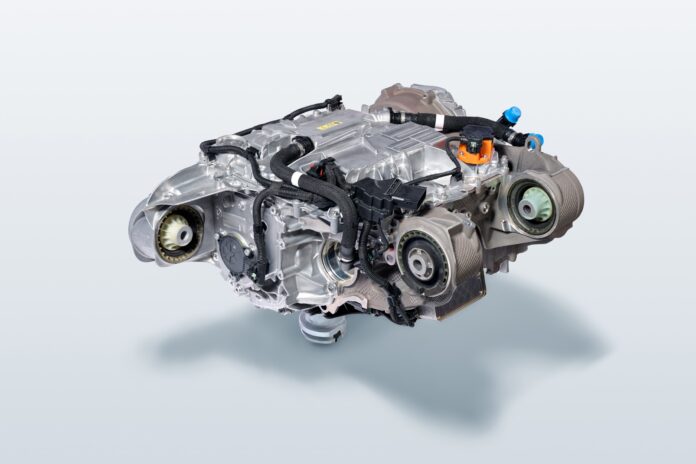BMW has unveiled a groundbreaking advancement in electric drive technology with the sixth generation of BMW eDrive, aimed at significantly enhancing the performance of its all-electric vehicles. The Neue Klasse models, set to launch this year, will benefit from an innovative high-voltage battery system and an intelligent Energy Master control unit, improving energy density, charging speed, and range. The introduction of 800V technology allows for a 30% faster charging time and extended driving range, reinforcing BMW’s commitment to leading the electric mobility sector. The modular approach in electric motor production, accommodating different motor types like SSM and ASM, grants flexibility while ensuring optimal performance. Furthermore, BMW is integrating its expertise across the electric mobility value chain, emphasizing both innovation and sustainability.
A key highlight is the integration of the BMW cylindrical cell, which offers a 20% increase in energy density compared to previous models, along with bidirectional charging capabilities. BMW’s new Gen6 battery concept also serves a structural function in vehicle architecture, further enhancing design efficiency. The Energy Master, developed in-house, acts as the central intelligence hub, optimizing power distribution and battery management, and is equipped with BMW’s latest patented technologies. This ensures real-time updates via remote software upgrades, keeping vehicles up-to-date and efficient. To support its next-gen battery production, BMW is establishing local assembly plants worldwide, including sites in Germany, Hungary, China, Mexico, and the USA, mitigating potential supply chain disruptions and creating new employment opportunities.
BMW’s commitment to sustainability is evident through its closed-loop recycling initiatives, recovering valuable materials from end-of-life batteries and reintegrating them into production. Partnering with SK tes and Encory, BMW is pioneering direct battery recycling methods, ensuring a more efficient and environmentally responsible manufacturing process. The company’s approach to electric drive systems remains technology-open, incorporating both electrically excited synchronous motors (EESM) and asynchronous motors (ASM) to optimize efficiency, cost, and weight reduction. By integrating 800V technology and silicon carbide (SiC) semiconductors in inverters, BMW achieves superior efficiency and energy loss reductions of 40% compared to previous models.
Production of BMW’s next-generation eDrive technology is centered in Europe, particularly at the Steyr and Landshut plants, where investment in electric mobility has surged. The Landshut facility, responsible for producing the Energy Master, has adopted state-of-the-art automation, ensuring cost-effective and high-quality manufacturing. Meanwhile, BMW’s thermal management innovations, developed in Steyr, play a crucial role in maintaining optimal vehicle performance, particularly in charging and energy efficiency. These developments position BMW at the forefront of electric mobility, with a focus on enhancing range, performance, and sustainability while maintaining the flexibility to adapt to diverse market needs.







